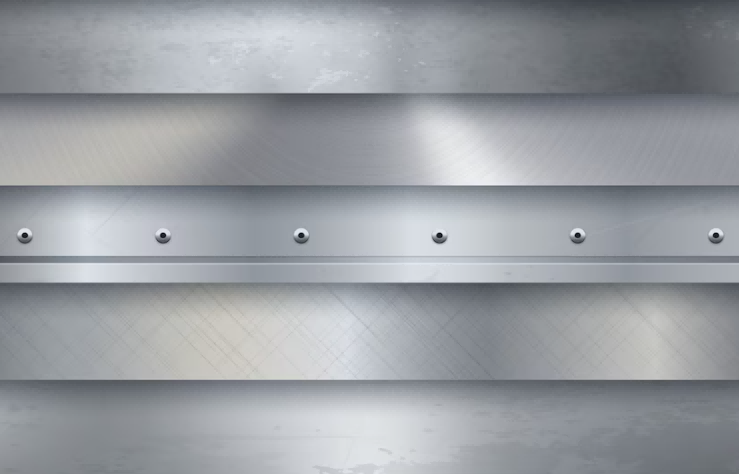 Trade Trends News
Trade Trends News
 15-09-2023
15-09-2023

Russia has stepped up imports of aluminum raw material alumina from India in recent months to supply its huge Siberian plant, a move that diversifies supplies from the sanctioned country, helping to reduce dependence on China and cut costs.
After the invasion of Ukraine, the world's second-largest aluminum producer lost two important sources of alumina used to make aluminum metal, a Ukrainian refinery suspended production and Australia banned supplies to Russia.
Despite the friendly relations between Russia and China, China's aluminum production is on the rise, resulting in less price flexibility for Russia to buy alumina.
Rusal, the world's largest aluminum producer outside of China, needs to fill the gap left by the supply suspensions to maintain domestic production while seeking to protect its margins against a backdrop of weak aluminum prices.
The company meets 70% of its needs, or 5.5 million tons, from its own alumina assets in Russia, Ireland, Jamaica and Guinea.
WoodMac's Ami Shivkar says: "After disruptions in deliveries from Ukraine and Australia, Rusal replaced it with increased alumina imports from China and other refineries in Asia, but this came at a considerable cost."
Last year, Russia became the largest buyer of alumina from China. By 2022, Rusal's cost of sourcing alumina will increase by $1.1 billion to $1.8 billion because it will have to pay more for raw materials and deliveries.
Rusal has since diversified by securing alumina supplies from India and Kazakhstan.
RUSAL told Reuters, "We can already say that the total cost of alumina for the company will decrease in 2023 compared to 2022."
Russia was the second-largest buyer of Indian alumina in the first half of this year, with India exporting 189,379 tons to Russia. no exports were made in the same period in 2022, Indian customs data showed.
An Indian industry official, speaking on condition of anonymity, told Reuters, "Russia is facing difficulties in getting alumina from developed countries, forcing it to turn to India."
India's state-run National Aluminium Company is a major supplier of Russian alumina, the official said.
Nalco did not respond to Reuters' request for comment.
Russia is expected to buy more than 350,000 tons of alumina from India in 2023, the official said. That estimate is broadly in line with Rusal's own calculations, the company told Reuters.
China remains Russia's largest third-party alumina supplier, with shipments of 485,160 tons from January to June, but has had less alumina available this year due to increased domestic aluminum production.
Kazakhstan Aluminum owner Eurasian Resources Group, which produces 1.3 million tons of alumina a year, told Reuters it plans to reduce supplies to Russia by 5 percent in 2023 as the country needs more product itself.
The company did not disclose how much alumina was shipped to Russia, but CRU Consulting estimates that Kazakhstan sends around 40,000-70,000 tons of alumina to Russia each month.
RUSAL needs to buy about 2.5 million tons of alumina per year from outside its own system.
Its Oughinish refinery in Ireland produces 1.6 million tons per year, but only 40% of its output is sold to Russia. The rest goes to Europe.
Jamaica supplied 190,070 tons of alumina to Russia in the first half of 2023, the Jamaica Bauxite Institute told Reuters.
Russian alumina purchases are too small to influence the global market, which is estimated at 60 million tons outside of China and dominated by Australia.
However, the need to import alumina means that RUSAL will be dependent on the price and supply/demand balance of the global alumina market for at least five years.
RUSAL said, "Despite the fact that we were able to restructure our raw material supply chain in a timely manner, we remain heavily dependent on imported alumina."
"In order to reduce the risk ...... we decided to consider the project of building a plant in Russia."
Rusal (Russian Aluminum) said in June it would build a $4.8 billion plant to produce alumina in a Russian Baltic Sea port. The first phase, with a capacity of 2.4 million tons per year, will come on stream at the end of 2028.
Tendata platform is different from the traditional B2B platform of passive waiting for customers: Tendata based on big data, can take the initiative to deeply analyze the customer background, accurately locate the purchasers with transaction records, and can greatly screen and locate the big customers. Tendata iTrader has 180 million global enterprise information, 10 billion data scrolling every day, can quickly and intelligently screen out 121 million executives, decision makers contact information, including email, phone, social media, etc., but also can synchronize the display of the company's yellow pages, product images and web site. At the same time, Tendata provides 17 visualization reports to help foreign trade enterprises accurately locate and analyze the market, so that you can quickly find the precise buyers and suppliers you need. (>>>Check out the Tendata website for more details.)
Category
Leave Message for Demo Request or Questions


 T-info
T-info T-discovery
T-discovery

 My
Tendata
My
Tendata Market Analysis
Market Analysis Customer
Development
Customer
Development Competitor
Monitoring
Competitor
Monitoring Customer Relationship
Customer Relationship





































































































































